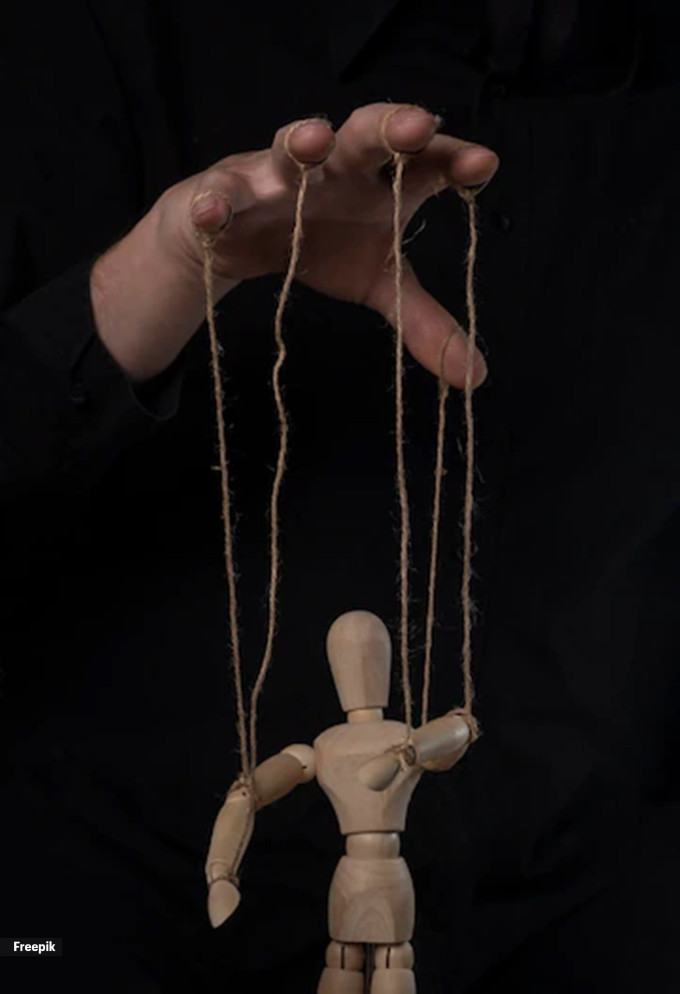Does your partner invalidate your feelings frequently? Signs of emotional manipulation and what you can do
Has your partner or now-ex told you several times that ‘you’re overreacting’ or tried to play the victim card when they’re clearly the one at fault? It’s most likely you’re dealing with a serial manipulator. Subtle mind games like these can leave lasting scars on both your physical and emotional well-being. While the signs of manipulation in a relationship are quite diverse, Sidhharrth S Kumaar, a relationship coach at NumroVani, says recognising these ‘mind games’ in a relationship is the first step in establishing healthy boundaries.
Here are a few signs that you’re dealing with a manipulator:
Gaslighting

One of the most insidious forms of manipulation is gaslighting, where your partner denies the reality of your experiences or emotions, leaving you questioning your own sanity. “When phrases like ‘you’re being too sensitive’ or ‘that never happened’ become too common, it is a sign that you’re being gaslit. This can make you doubt the validity of your own feelings,” Kumaar said.
Emotional Tug-of-War
Manipulators often excel at playing with emotions like a puppeteer pulling strings. They might shower you with affection one moment and withdraw it the next, creating an emotional rollercoaster that leaves you yearning for stability. “Sometimes they might be very talkative and loving, and other times they might be aloof or unresponsive for no apparent reason. This tactic keeps you on your toes, making it difficult to establish a secure emotional foundation,” Kumaar explained.
Playing the Victim
If your partner has a knack for flipping the script and portraying themselves as the victim, a tactic that shifts focus away from their actions, it is likely that they are manipulating you. “This might make it difficult for you to address the root issues in your relationship, so be wary if your partner consistently avoids accountability and plays the victim card,” Kumaar noted.
 Manipulators often excel at playing with emotions like a puppeteer pulling strings. (Source: Freepik)
Manipulators often excel at playing with emotions like a puppeteer pulling strings. (Source: Freepik)
Isolation
Manipulation can include strategic isolation, where your partner forcibly makes you cut ties from your family and friends. “By creating a sense of dependency, they strengthen their control over you. If you find yourself becoming increasingly isolated from your loved ones, it’s essential to question the motives behind such behaviour,” said Kumaar.
Guilt Tripping
A manipulator’s toolkit often includes guilt as a powerful weapon. They may use guilt to coerce you into compliance—making you feel responsible for your emotional well-being or using past mistakes to manipulate your present choices. “Recognising when guilt is being weaponised is crucial for maintaining your own agency,” Kumaar noted.
Constant Criticism
While constructive criticism can be beneficial, Kumaar says that constant and unwarranted negativity is a red flag. “Manipulators often use criticism to chip away at your self-esteem, making you more reliant on their approval. If your partner consistently undermines your achievements or belittles your aspirations, it may be a sign of manipulation.”
How to Deal with it
According to Kumaar, it’s crucial to first identify the actions that you believe to be ‘mind games’. “The first step in dealing with these habits is recognising them.”
Keeping a record of particular situations where you feel unfairly or manipulatively treated can help you prevent these and make patterns clearer. “Although it can be tempting to react to mind games similarly, doing so frequently will make the situation worse and create a vicious cycle,” Kumaar advises.
A last resort might be to consult a relationship counsellor or therapist if the mind games are an indication of more serious problems in the relationship. “Expert advice can offer methods and resources to enhance communication and deal with underlying issues. Couple counselling is also a good option to consider in such cases,” Kumaar said.
Despite your best efforts, if mind games persist, it might be time to reassess the partnership. “You may decide to work on the relationship further, take a break, or in certain situations think about ending it, depending on how serious the situation is and how willing both parties are to address the problems,” Kumaar concluded.
Disclaimer: The copyright of this article belongs to the original author. Reposting this article is solely for the purpose of information dissemination and does not constitute any investment advice. If there is any infringement, please contact us immediately. We will make corrections or deletions as necessary. Thank you.





